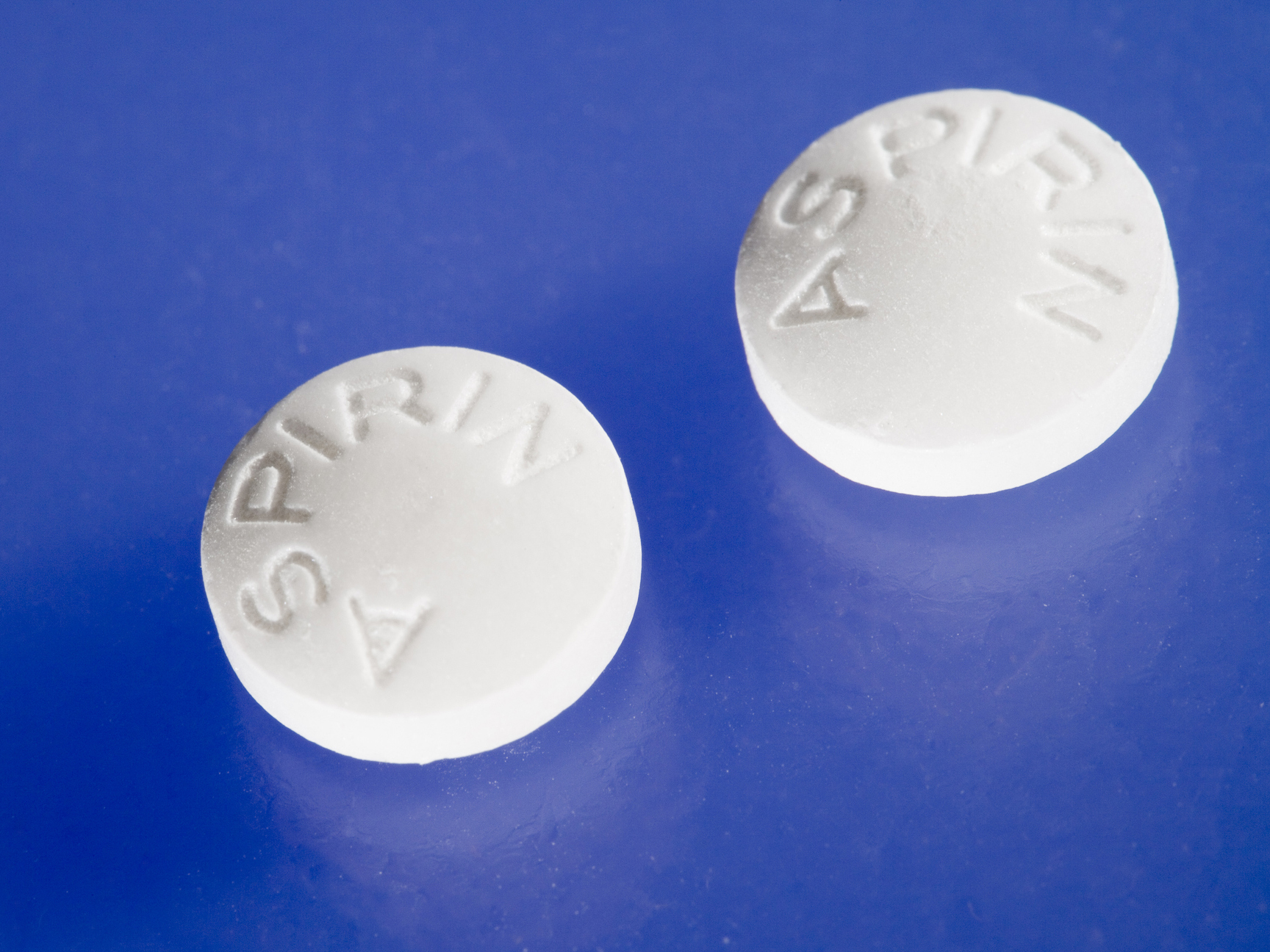Get Easy Health Digest™ in your inbox and don’t miss a thing when you subscribe today. Plus, get the free bonus report, Mother Nature’s Tips, Tricks and Remedies for Cholesterol, Blood Pressure & Blood Sugar as my way of saying welcome to the community!
Aspirin may not be as dangerous as we thought

Statistics from the past few years indicate that perhaps half of the adults in the United States are using aspirin at least twice a week as a way to prevent a heart attack.
Aspirin continues to be routinely prescribed by doctors to patients at risk of heart disease. But research is starting to question whether this is OK for everyone.
In 2018, The New England Journal of Medicine published a study funded by the National Institutes on Aging, which concluded that the benefits of taking low-dose aspirin daily to prevent a heart attack just aren’t worth the risk to older adults.
A lot of it depends on which type of stroke you may have had, or are concerned about preventing.
If you’re one of the thousands who have been regularly popping an aspirin, and particularly if you are at high risk of stroke or have had a stroke, you’ll want to pay close attention.
First, a quick recap of the two major kinds of stroke:
Ischemic stroke occurs when a blood vessel supplying blood to the brain is obstructed by a clot.
Hemorrhagic stroke occurs when a weakened blood vessel in the skull or brain ruptures.
It’s also important that you understand the two types of drugs that work to prevent blood clotting and the differences in how they work.
Not all anti-clotting drugs are the same…
Aspirin, and any other drug that works to prevent stroke, is essentially working to prevent your blood from clotting.
There’s a difference, though, between antiplatelets and anticoagulants.
Antiplatelets. Blood platelets are simply cell fragments that release a signaling chemical when you have a cut or scratch, causing other platelets to rush to the scene and help form a clot.
But if you’ve had a stroke, the last thing you want is for those helpful little platelets to show up and start sticking together, clogging a vital artery. Aspirin is an antiplatelet drug. It helps keep this from happening.
Anticoagulants, on the other hand, are a more heavy-duty drug. They go right to the source and target clotting factors, proteins made by the liver, that enable the clotting process.
Drugs like Warfarin and Coumadin are anticoagulants. They interrupt the process by competing with vitamin K, which is essential to creating those clotting factors.
Just this year, two studies have helped us figure out who should be using aspirin as a preventive measure, and who definitely should steer clear of it.
Low-dose aspirin may actually increase your risk…
A study published this month in the Journal of the American Medical Association found that adults who have never had a stroke are better off steering clear of using aspirin as a preventive measure.
The study examined 13 randomized clinical trials comparing a daily aspirin dose of less than 100mg with a control group who did not take aspirin.
The study involved 134,446 persons in total, and found that, for people who had never had heart disease or a stroke, aspirin use was associated with a higher risk of intracerebral hemorrhage (bleeding in the skull), as well as intracerebral hemorrhage (brain bleed) in those of Asian descent, and people with a low body mass index.
…or it may lower it
A second recent study from the University of Edinburgh turned up some rather surprising results.
In a long-term study funded by the British Heart Foundation, researchers at the University of Edinburgh looked at 537 patients who had already suffered a hemorrhagic stroke. They were randomly assigned to either start taking antiplatelet treatment, or to avoid it for up to five years.
The people who took antiplatelet medicines experienced fewer recurrences of brain hemorrhage compared with those who did not take these medications.
These results were somewhat surprising, since aspirin, like all antiplatelet drugs, works to control clotting. Less clotting would logically lead to more chance of bleeding.
But Professor Rustam Salman of the University of Edinburgh’s Centre for Clinical Brain Sciences feels confident that further research will uphold these findings.
“We now have a strong indication that [patients] can carry on taking these potentially life-saving medicines after the brain hemorrhage without increasing the risk of another one, which is crucial new information for both patients and doctors.”
Natural anticoagulants
Of course, there are natural foods and nutrients that help slow clotting and prevent stroke.
There’s evidence that potassium slashes hypertension and lowers stroke risk. High-potassium foods include bananas, sweet potatoes, avocados, spinach, lentils, and yogurt.
And here, Dr. Michael Cutler gives you an extensive list of foods and supplements for stroke prevention.
Of course, if you are on a blood thinner or medication, it’s best to talk to your doctor before using anything else that also has a blood thinning effect and to check for drug interactions.
Editor’s note: If this health issue really matters for you or a loved one… if you want to discover how to slash you risk of stroke… stop sudden cardiac death — and drop heart disease risk by 400 percent, click here to keep reading!
Sources:
- Frequency of Intracranial Hemorrhage With Low-Dose Aspirin in Individuals Without Symptomatic Cardiovascular Disease — JAMA Neurology
- Aspirin green light for brain bleed stroke patients — Neuroscience News
- Effects of antiplatelet therapy after stroke due to intracerebral haemorrhage (RESTART): a randomised, open-label trial — The Lancet
- Effect of Aspirin on Cardiovascular Events and Bleeding in the Healthy Elderly — The New England Journal of Medicine
- Low-Dose Aspirin Late in Life? Healthy People May Not Need It — The New York Times
- Eating Potassium-Rich Food May Lower Stroke Risk — Live Science













